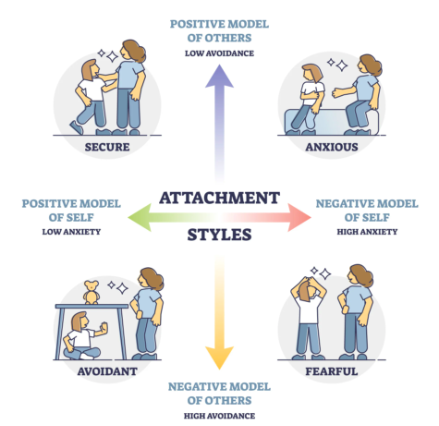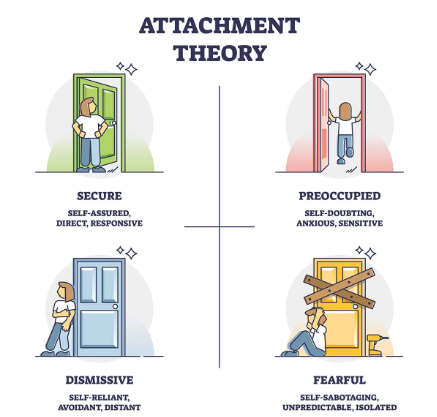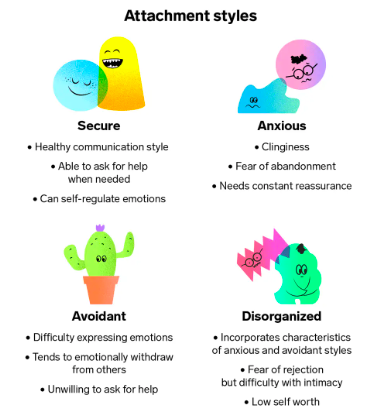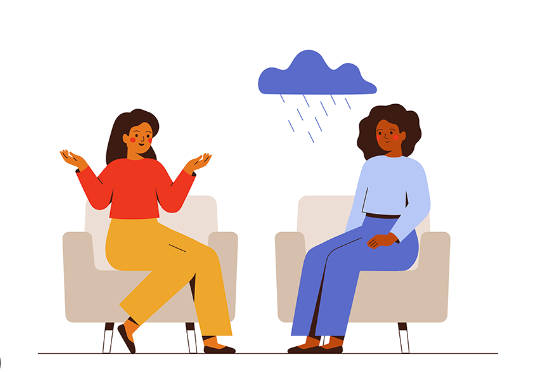Relationship Difficulties
As human beings, we need social interactions in order to survive. Through contact with others, we feel fulfilled, and some people say that social interactions give meaning to our existence.
However, many times, interacting with others is not an easy task; it generates fear and anxiety, or we don’t know how to communicate and make ourselves understood effectively.
Relational difficulties can occur in all kinds of contexts, whether it’s within the family, workplace, with our partners, siblings, or even with people we don’t know.
At times, these difficulties can lead us to profound suffering and mental health problems, such as depression, anxiety, or even social anxiety.
Social skills, like any other skill, can be developed, refined, and learned, which would undoubtedly allow us to interact better with others and feel more comfortable and happier in our interactions.
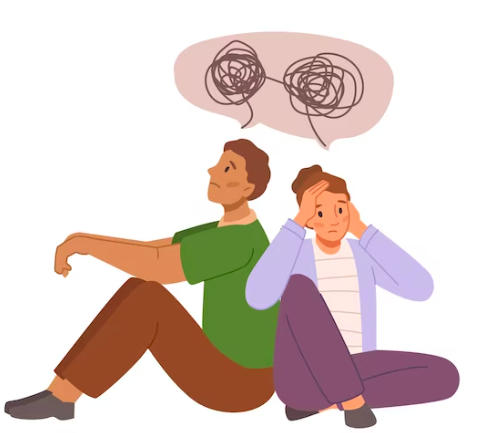
- When it comes to relationship difficulties, the majority of people tend to seek therapy for issues within the couple, either individually or in joint therapy.
Relationship difficulties can encompass a wide range of challenges that couples or individuals might face in their romantic relationships. These difficulties can arise due to various factors and may affect both new and long-term relationships. Some common relationship difficulties include:
1. Communication Problems: Difficulties in expressing feelings, needs, or concerns effectively can lead to misunderstandings, conflicts, and emotional distance.
2. Trust Issues: Trust is a fundamental aspect of a healthy relationship. When trust is broken due to lies, infidelity, or other reasons, it can cause significant strain on the relationship.
3. Intimacy and Sexuality: A lack of emotional or physical intimacy can create frustration and feelings of disconnection between partners.
4. Different Expectations: If partners have different expectations about the relationship’s future, commitment level, or lifestyle, it can lead to conflicts and dissatisfaction.
5. Financial Problems: Disagreements over money, spending habits, or financial goals can add stress to a relationship.
6. Jealousy and Insecurity: Feelings of jealousy or insecurity can stem from past experiences, trust issues, or personal insecurities, and may impact the relationship negatively.
7. Lack of Emotional Support: Feeling unsupported or not emotionally connected with one’s partner can lead to feelings of loneliness and frustration.
8. Family and Cultural Differences: Cultural or family-related differences in values, beliefs, or traditions can sometimes lead to conflicts between partners.
9. Work-Life Balance: Struggling to balance work, personal life, and the relationship’s demands can create tensions and affect the quality of the relationship.
10. Changes in Life Circumstances: Major life events such as relocation, job changes, illness, or loss of a loved one can put a strain on a relationship.
11. Unresolved Past Issues: Baggage from past relationships or unresolved personal issues can influence how individuals behave and interact in their current relationship.
12. Communication Styles: Differences in communication styles between partners can lead to misunderstandings and difficulties in effective communication.
Attachment Styles
On the other hand, understanding and been aware of your attachment styles, as well as healing psychological wounds is fundamental to create and experience a healthy relationship with friends, family or partner.
Atachment styles are psychological frameworks that describe how individuals perceive and respond to emotional intimacy and closeness in relationships, particularly in the context of their primary caregivers during early childhood. These styles influence how people form and maintain relationships throughout their lives. There are four main attachment styles:
1. Secure Attachment: People with a secure attachment style are generally comfortable with emotional intimacy and feel confident in their relationships. They are able to balance their independence with a healthy reliance on others. Individuals with secure attachment tend to have a positive view of themselves and others. They can communicate their needs and are supportive partners.
2. Anxious (Preoccupied) Attachment: Individuals with an anxious attachment style often fear rejection or abandonment and may feel insecure in relationships. They seek high levels of emotional closeness and validation, but they may also worry about their partner’s feelings for them. They may become anxious or distressed if they perceive their partner as distant or unavailable.
3. Avoidant (Dismissive-Avoidant) Attachment: People with an avoidant attachment style tend to emphasize their independence and self-sufficiency. They may be uncomfortable with emotional intimacy and may find it difficult to fully trust or rely on others. They might downplay the importance of relationships or distance themselves emotionally.
4. Fearful-Avoidant (Disorganized) Attachment: This attachment style is a combination of anxious and avoidant tendencies. Individuals with a fearful-avoidant attachment style desire emotional closeness but also fear getting hurt. They might have a push-pull dynamic in relationships, seeking intimacy but then withdrawing due to fear or mistrust.
These attachment can evolve over time as individuals experience different relationships and personal growth. It’s important to note that attachment styles are not solely determined by early experiences; they can also be influenced by later life experiences and therapeutic interventions. Recognizing one’s attachment style and understanding the patterns it creates can be helpful in building healthier and more fulfilling relationships.
Discover your attachment style:
Relationship Difficulties Therapy
Therapy can be highly beneficial for addressing relationship difficulties.
There are different types of therapy approaches that can help individuals and couples navigate and improve their relationships, such as indicidual or couple’s therapy.
Sometimes, one or both individuals in a relationship might benefit from individual therapy to address personal issues that are affecting the relationship. This can include working on self-esteem, communication skills, attachment patterns, and emotional regulation.
We can provide a safe and supportive space for exploring issues, developing new skills, and working toward positive changes in your relationships.
Remember that therapy requires active participation and effort from all parties involved, but it can lead to improved communication, stronger connections, and healthier relationships.
BOOK APPOINTMENT & INFO
Together we will find the way to help you
- Call us: 0451344805
- +61451344805
- [email protected]
- ps_constanza
- 410/251 Oxford Street, Bondi Junction, 2022

